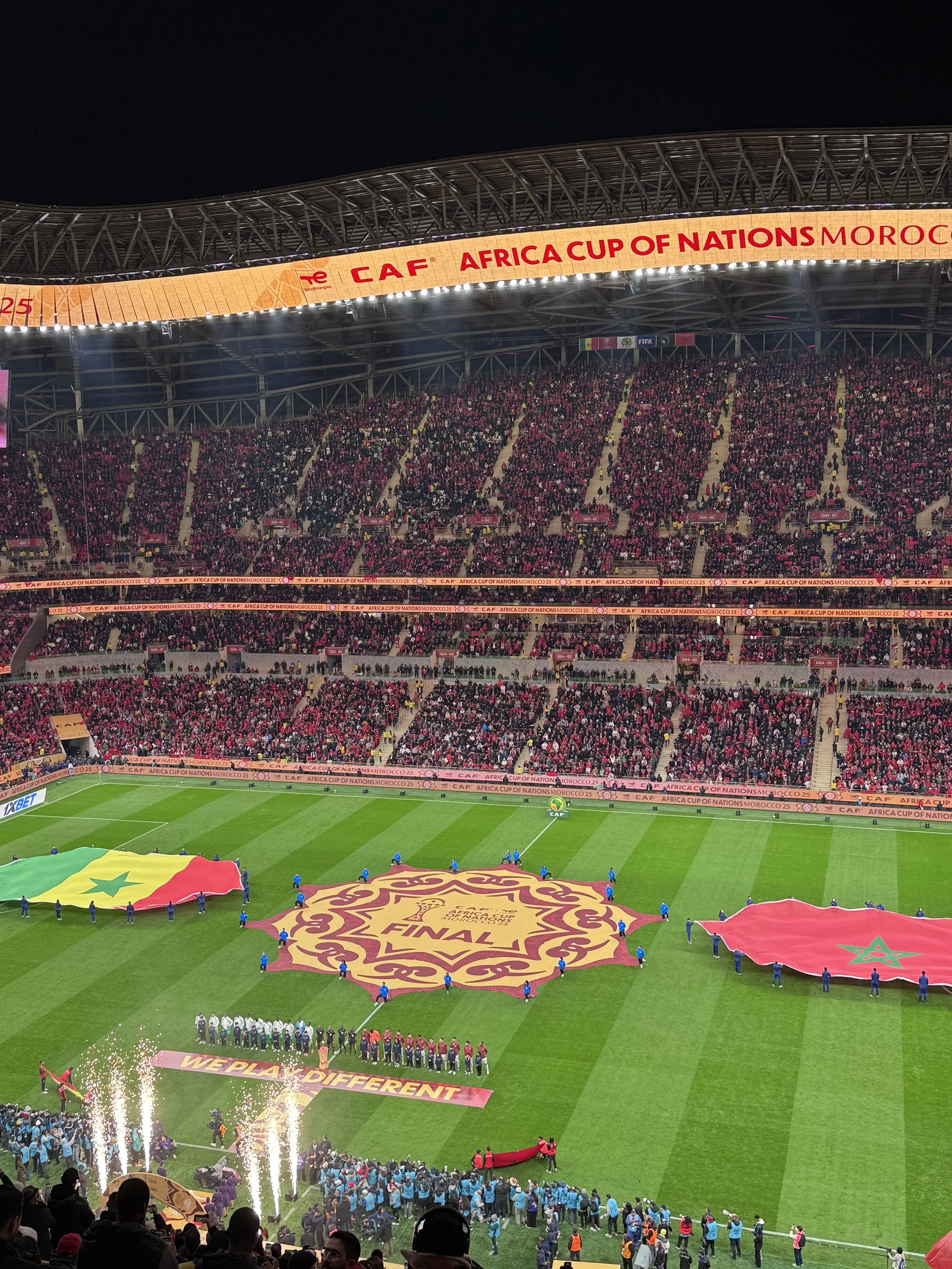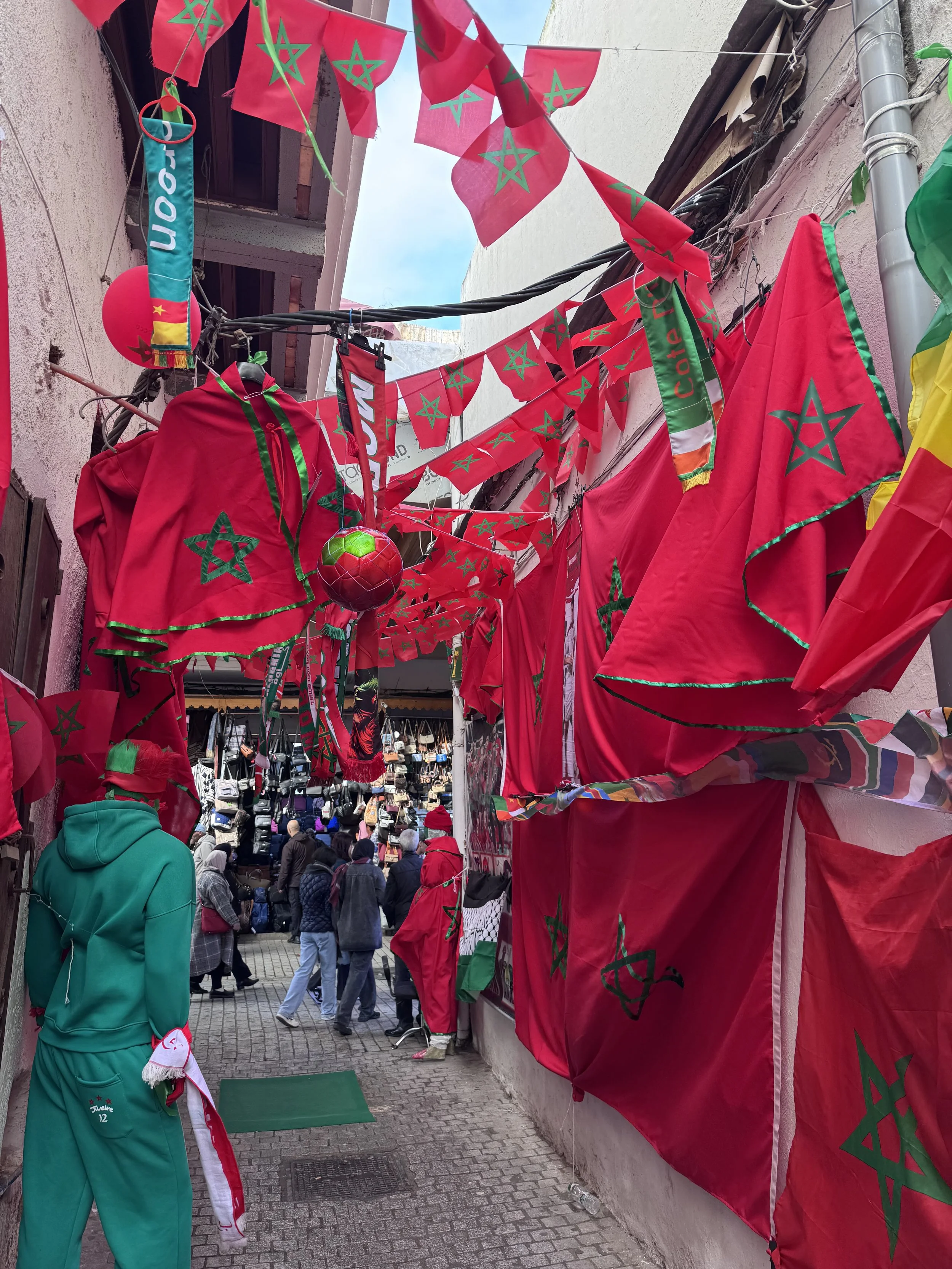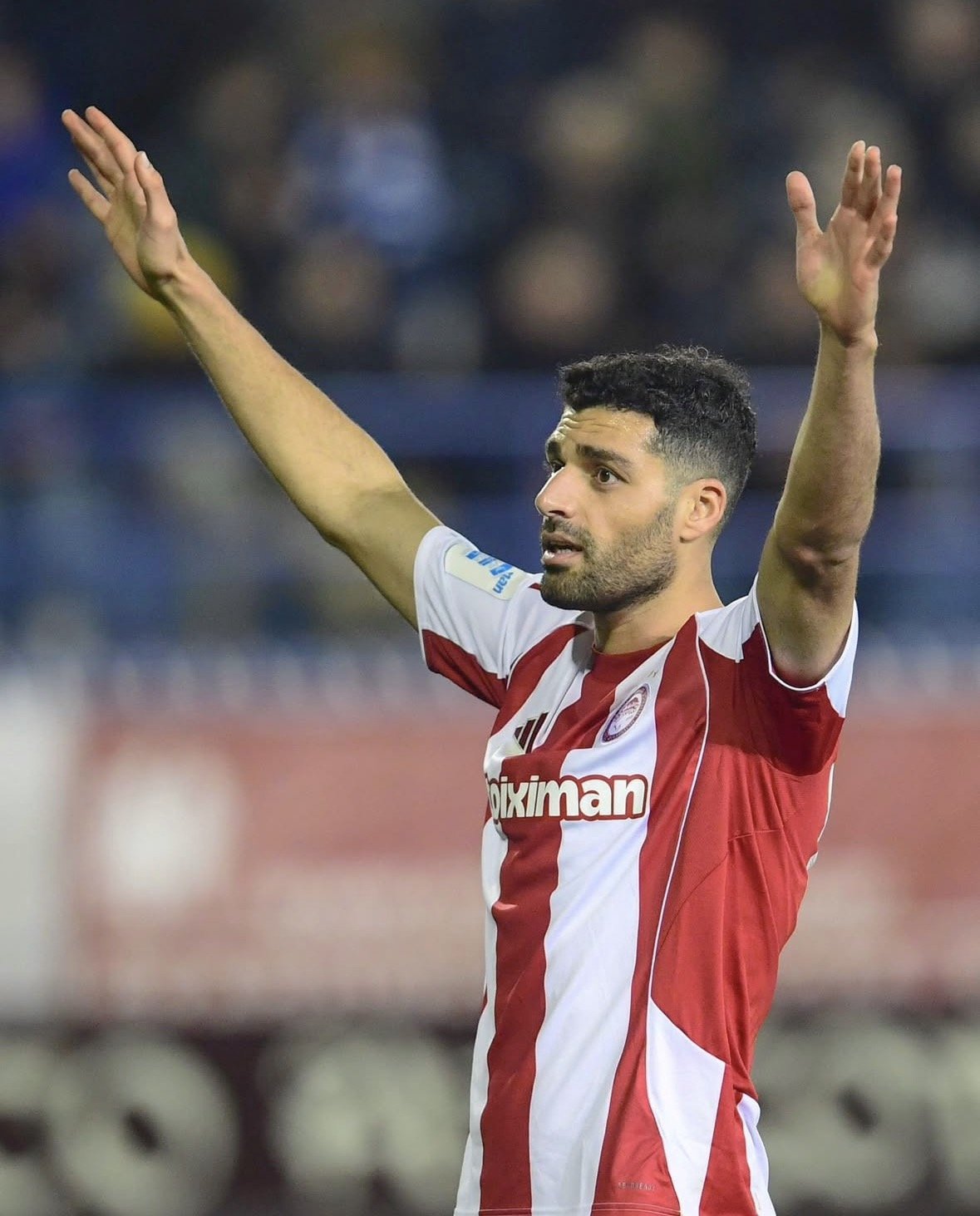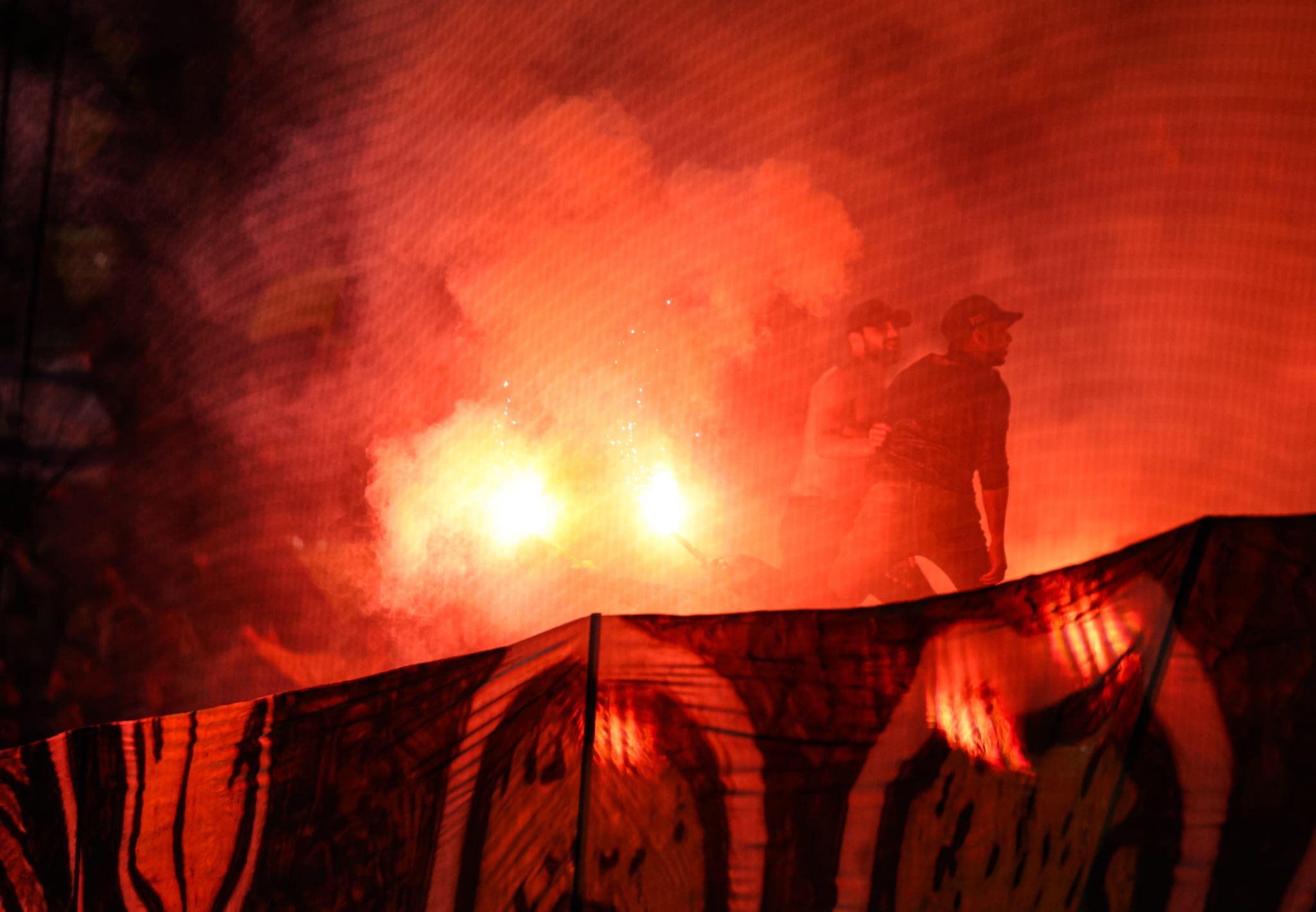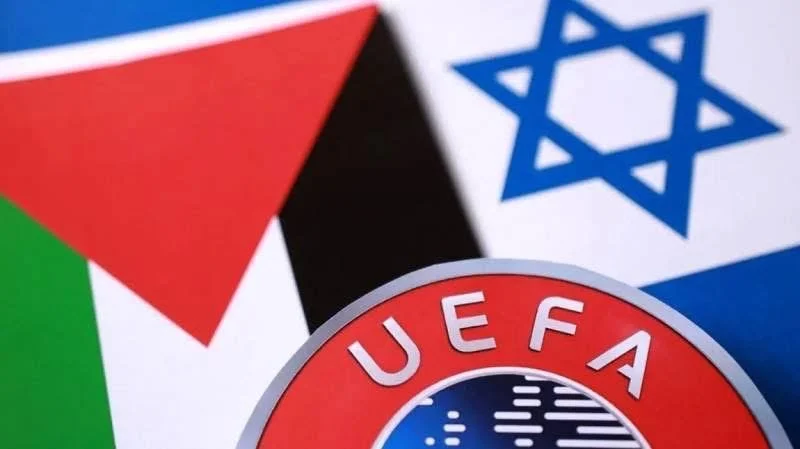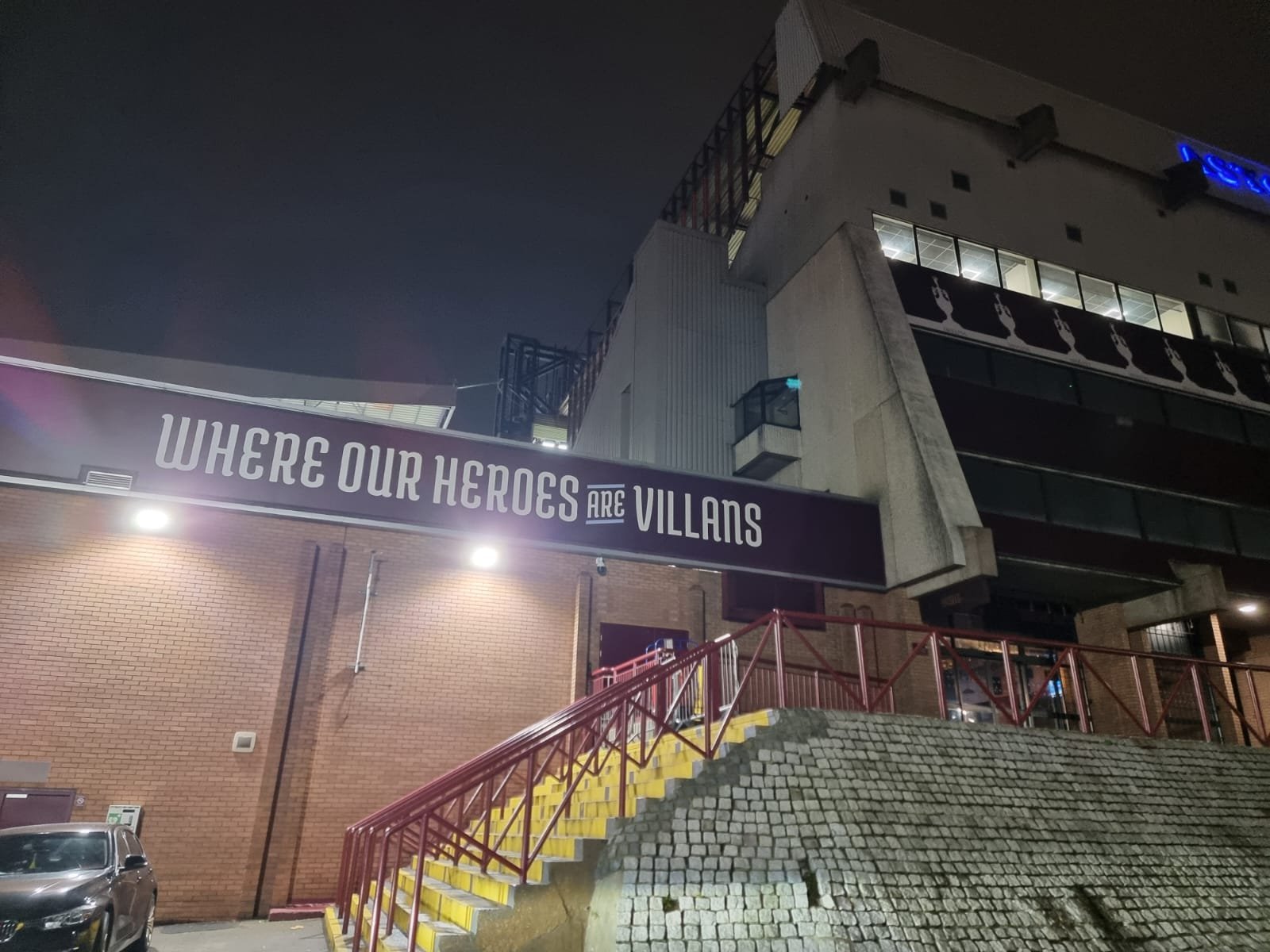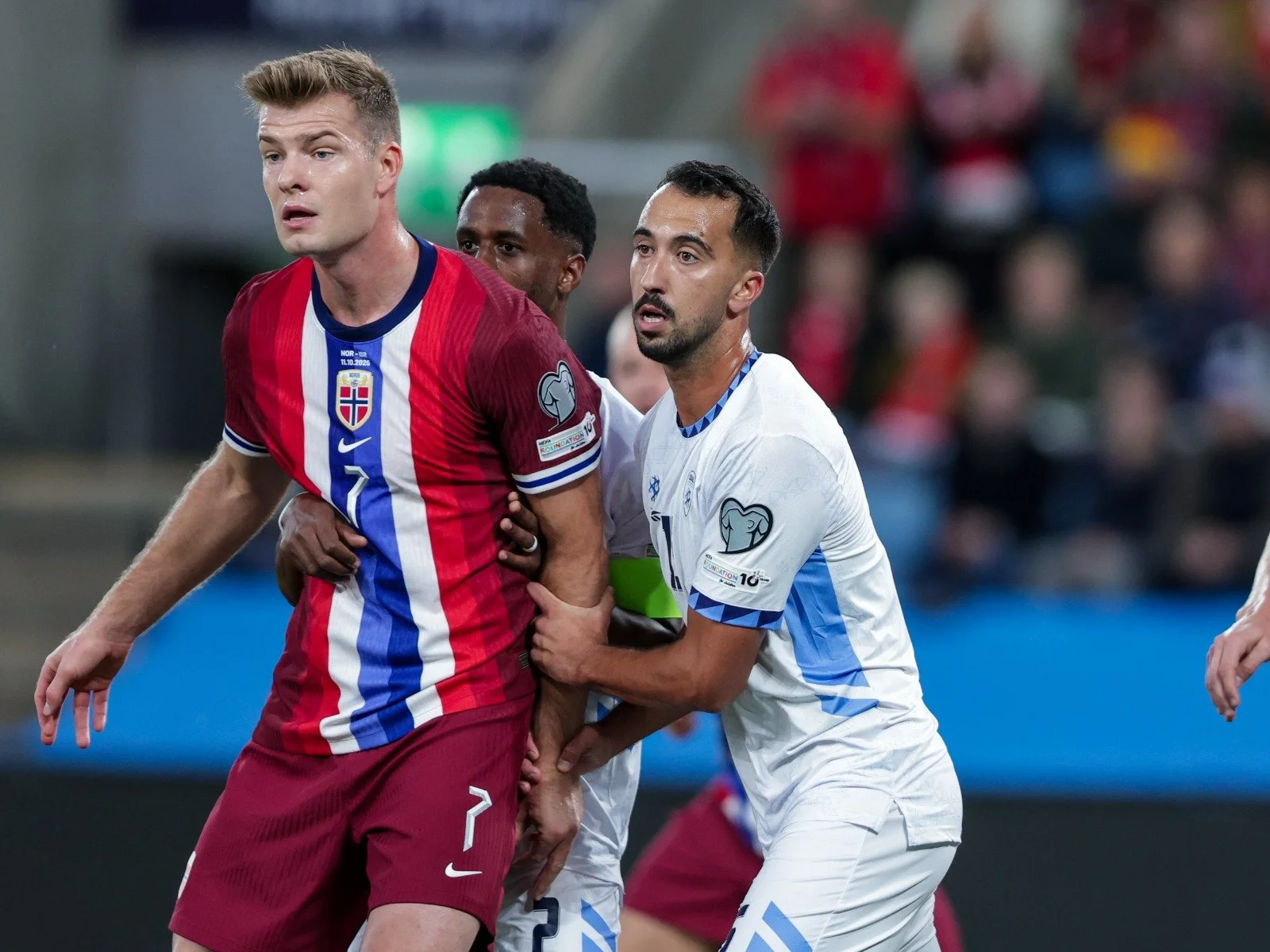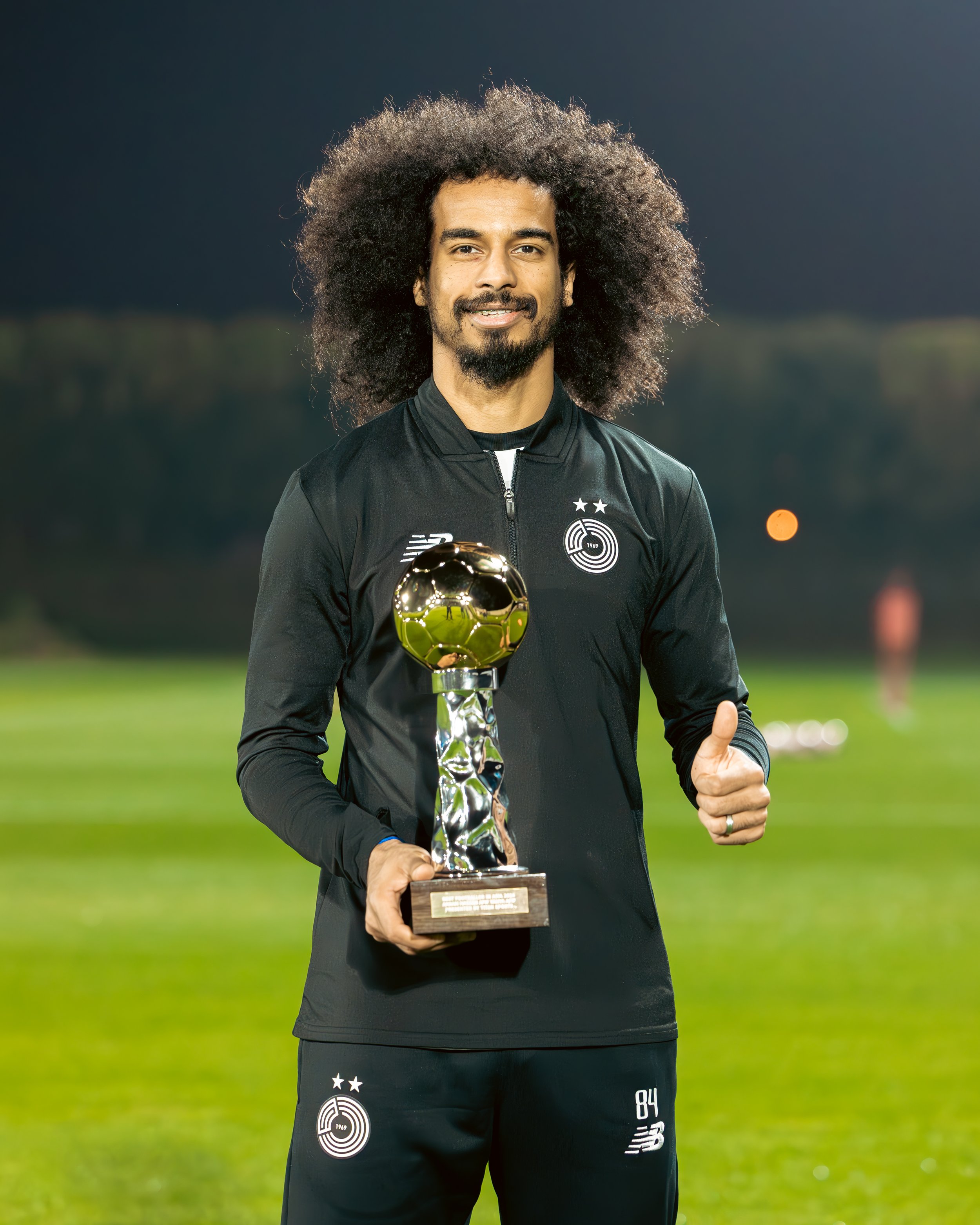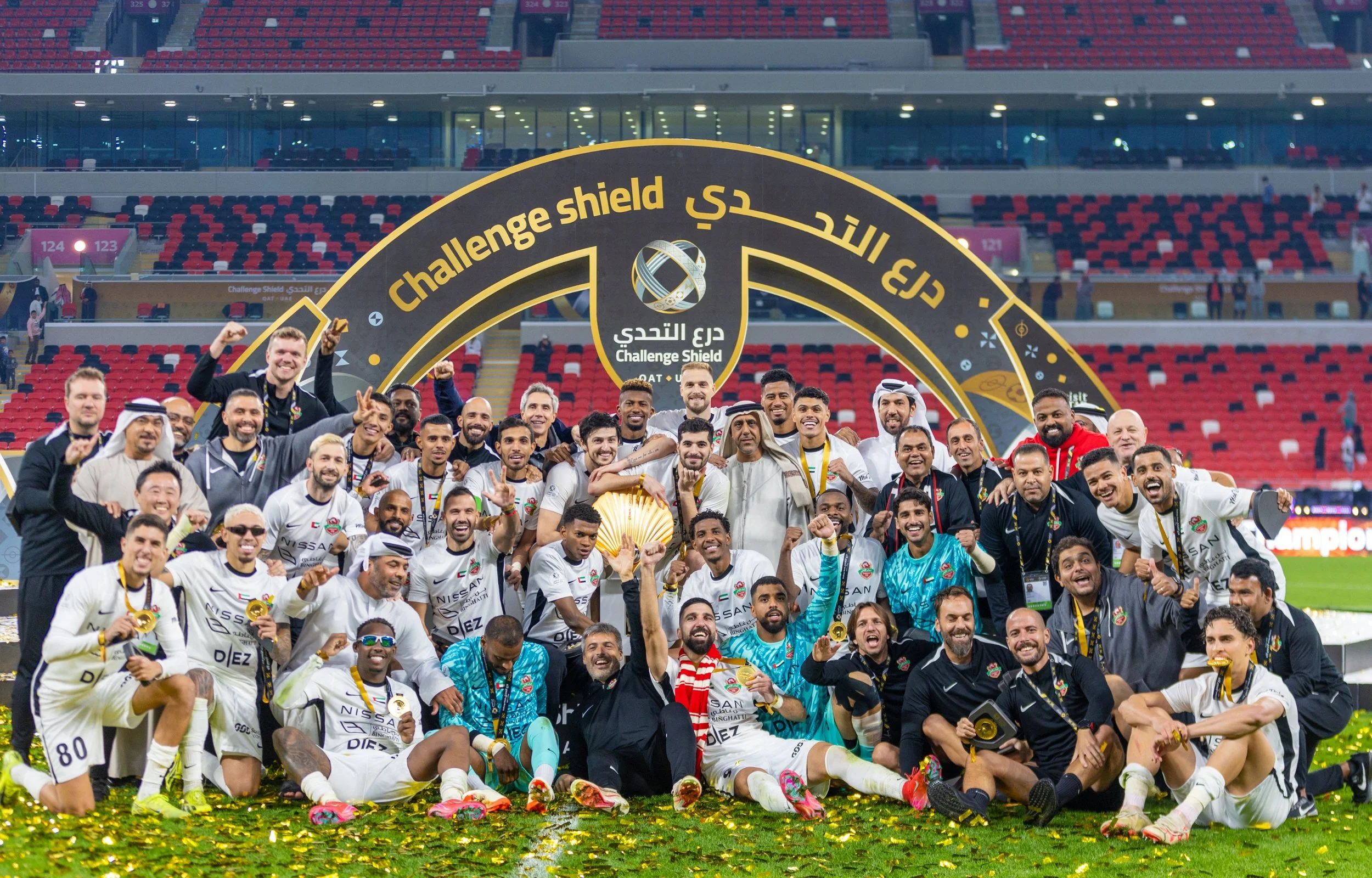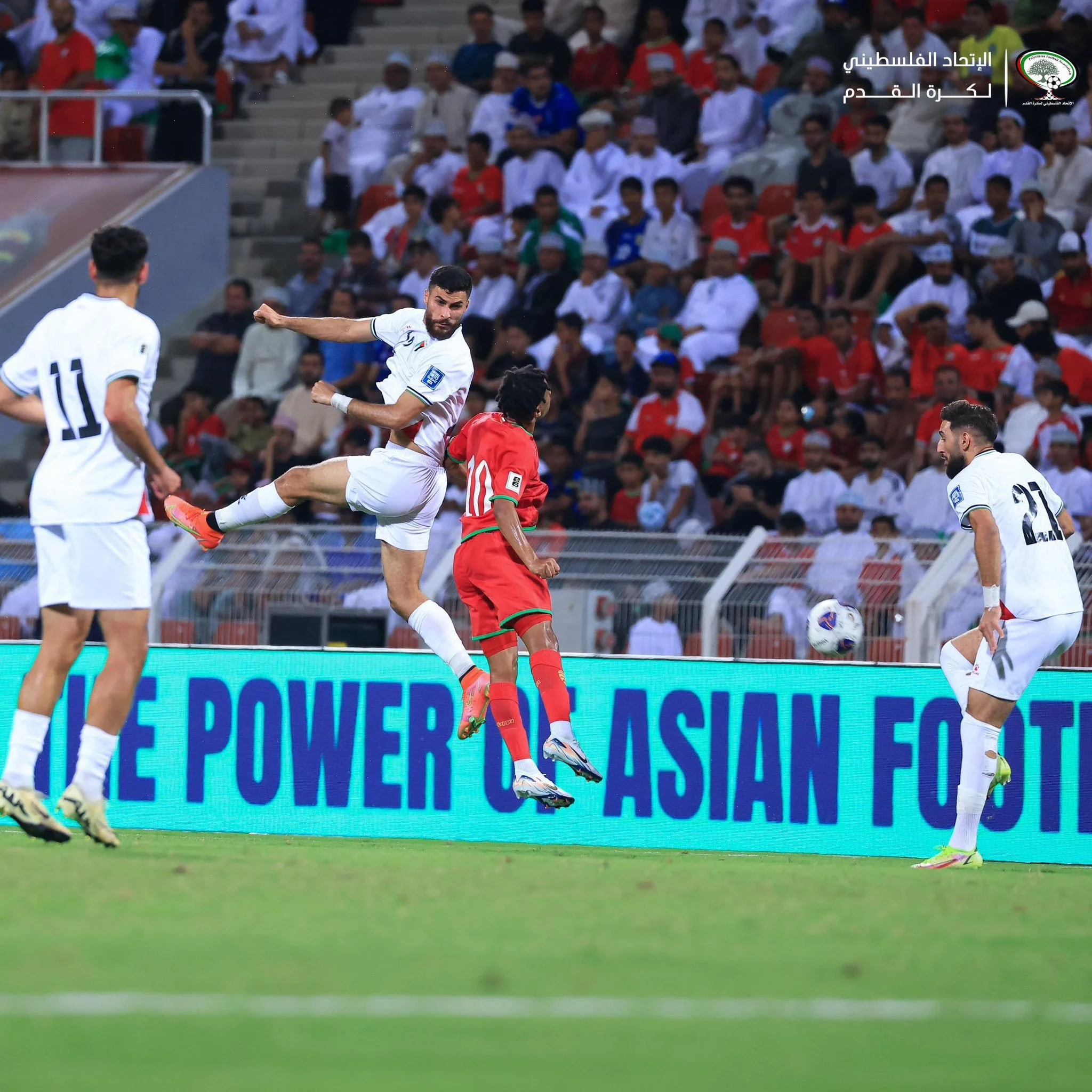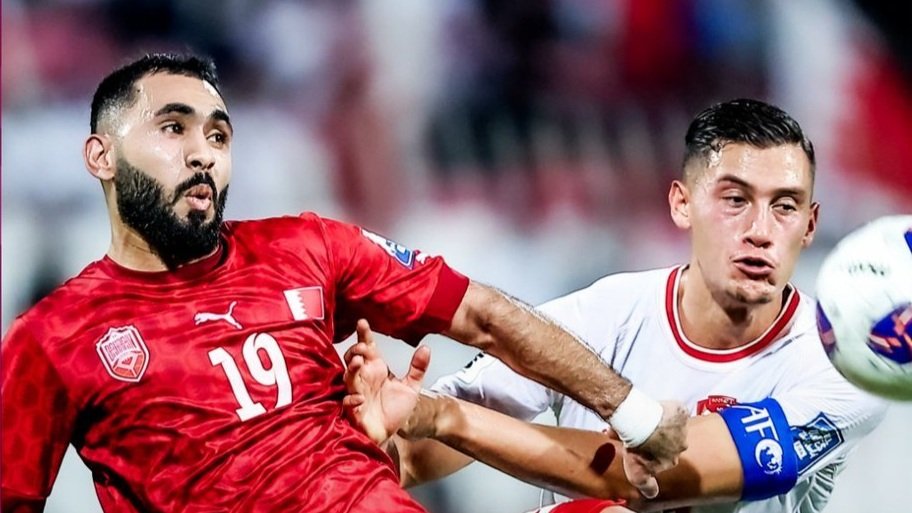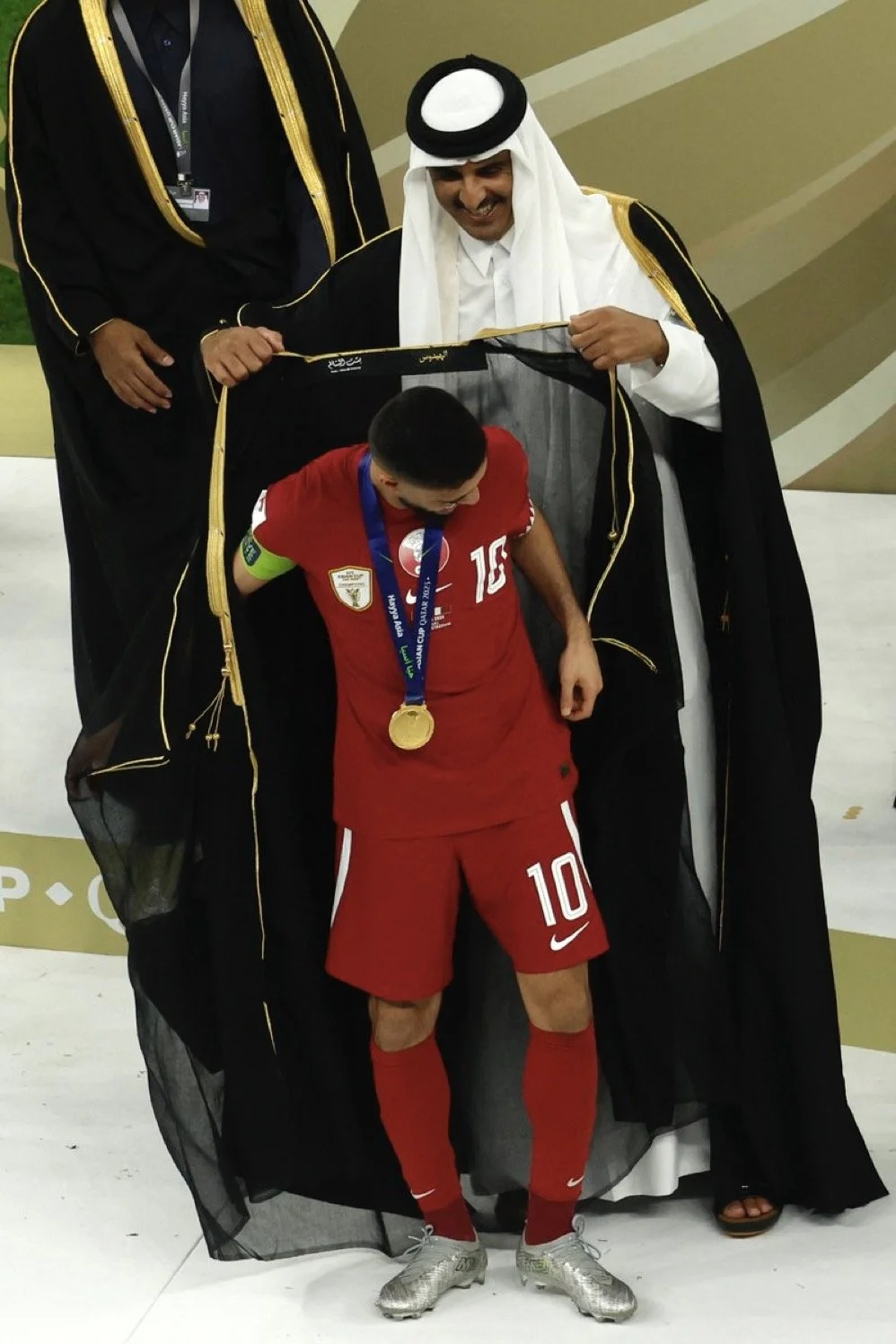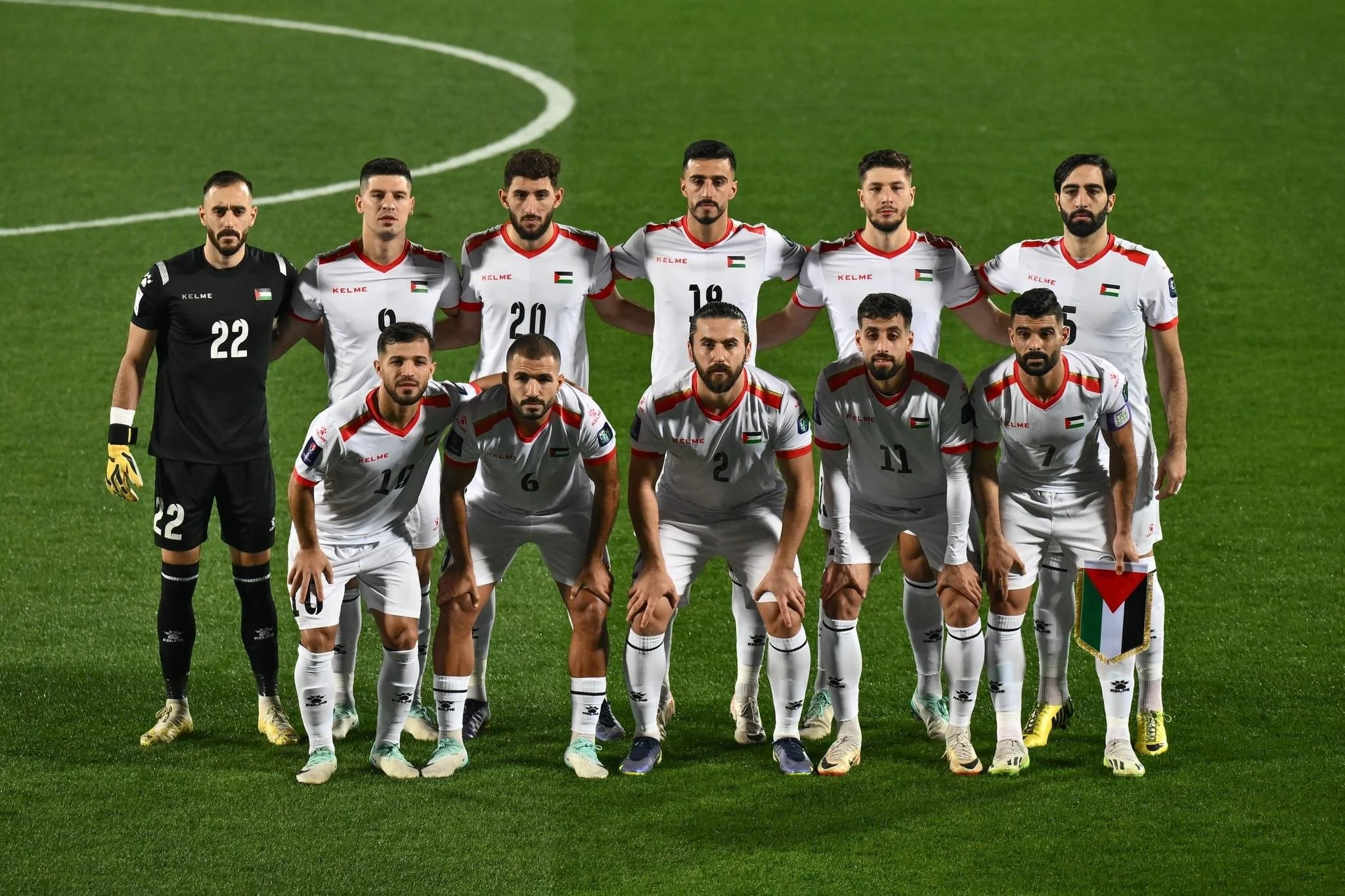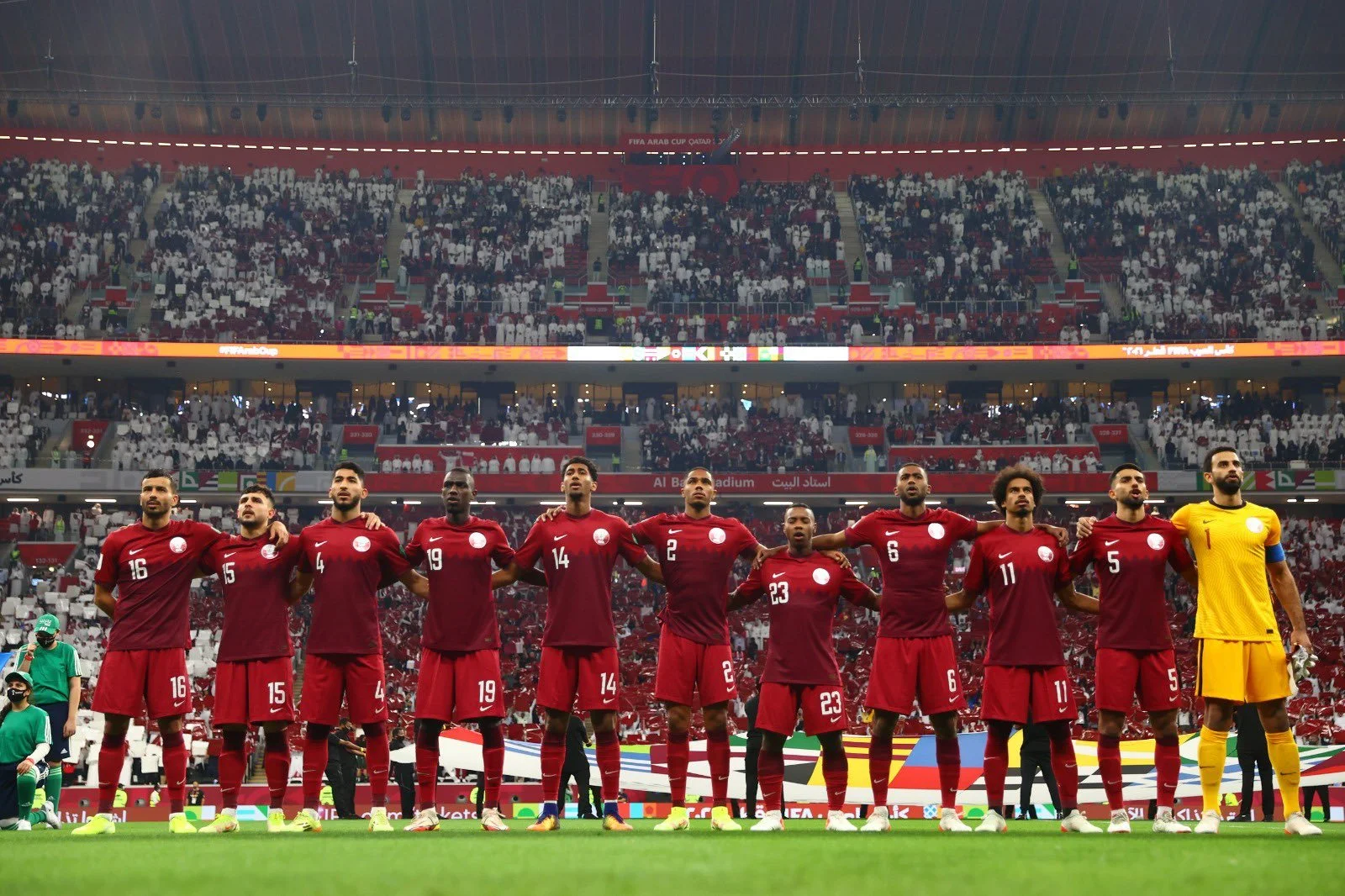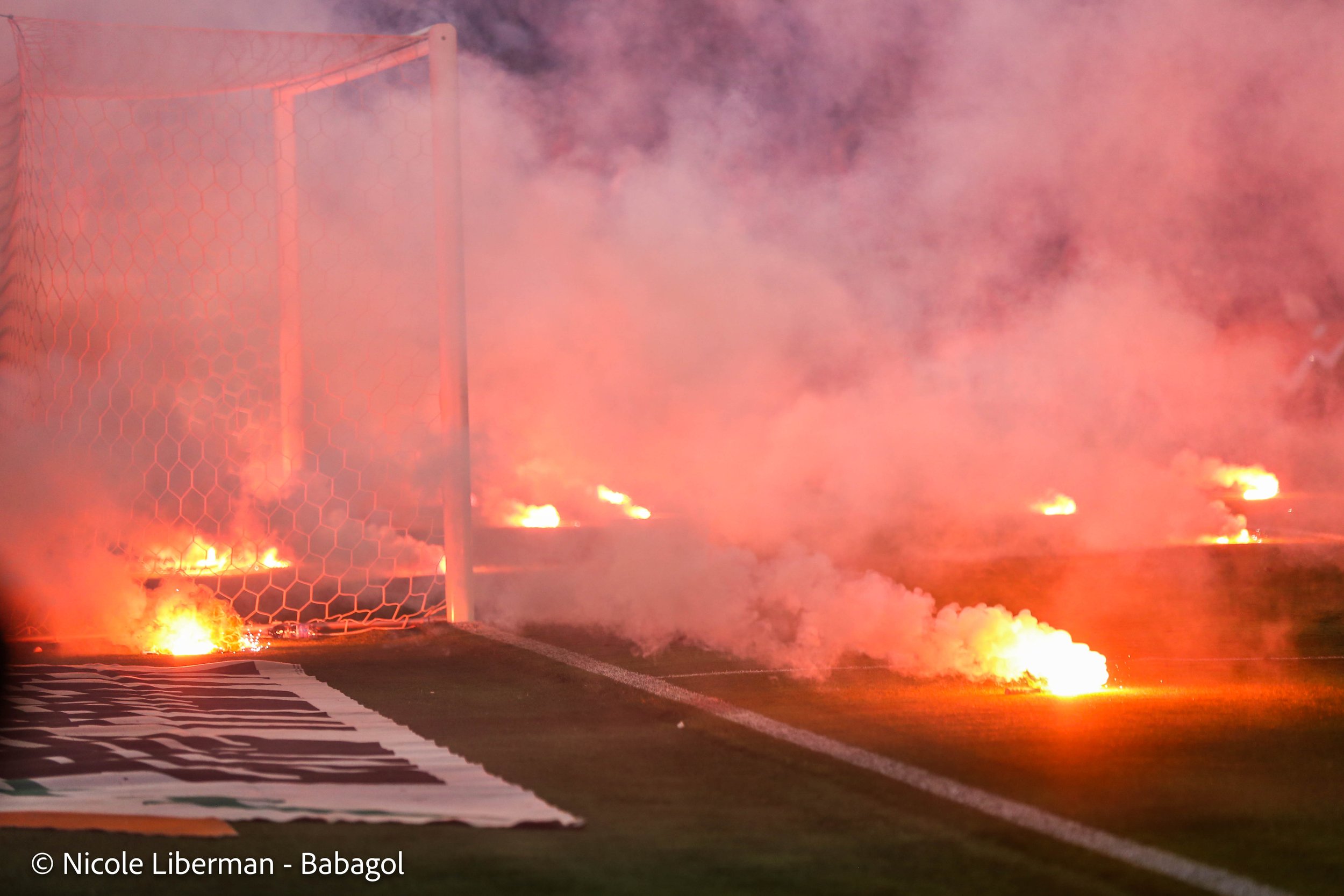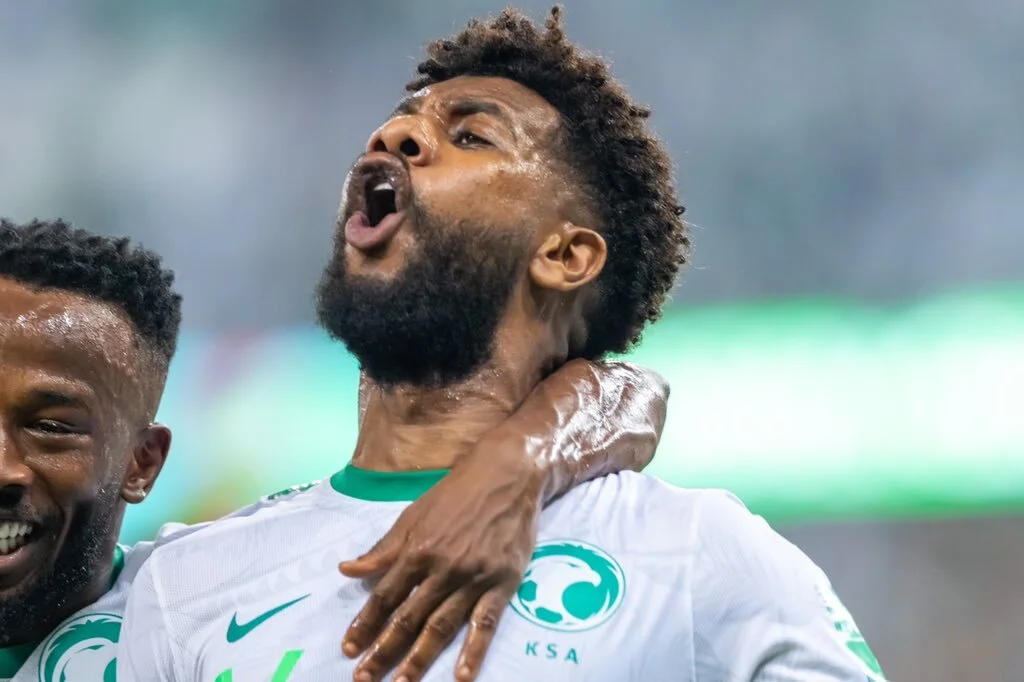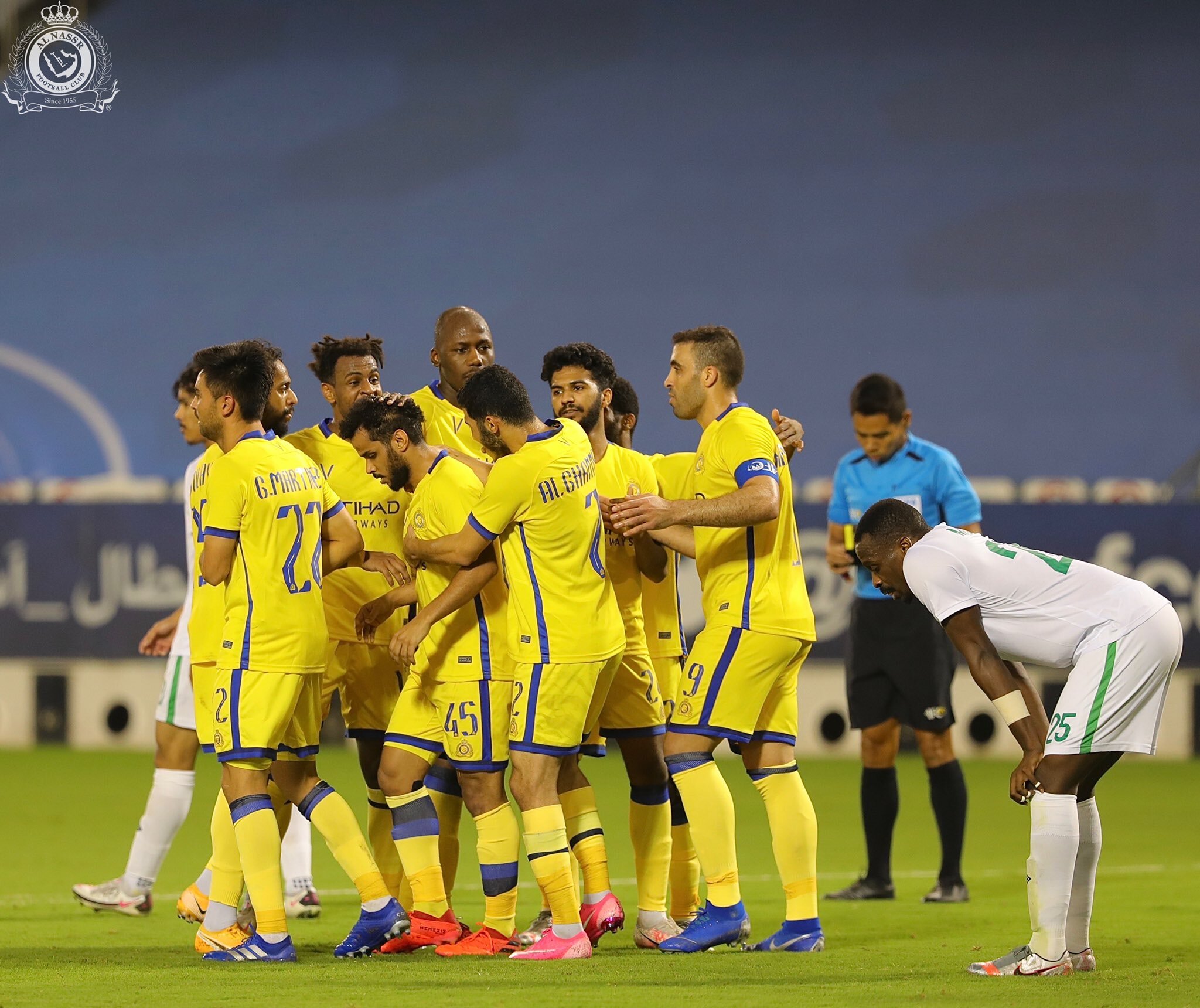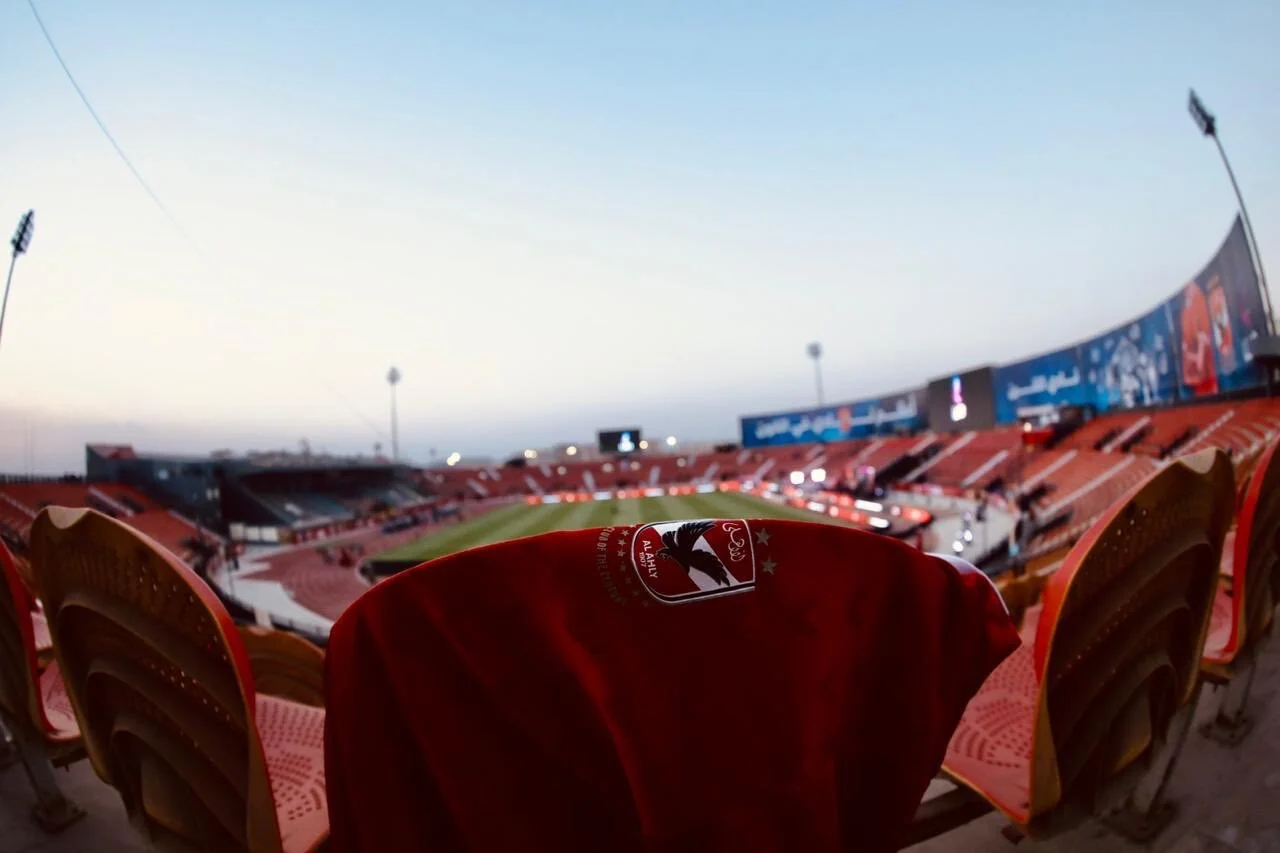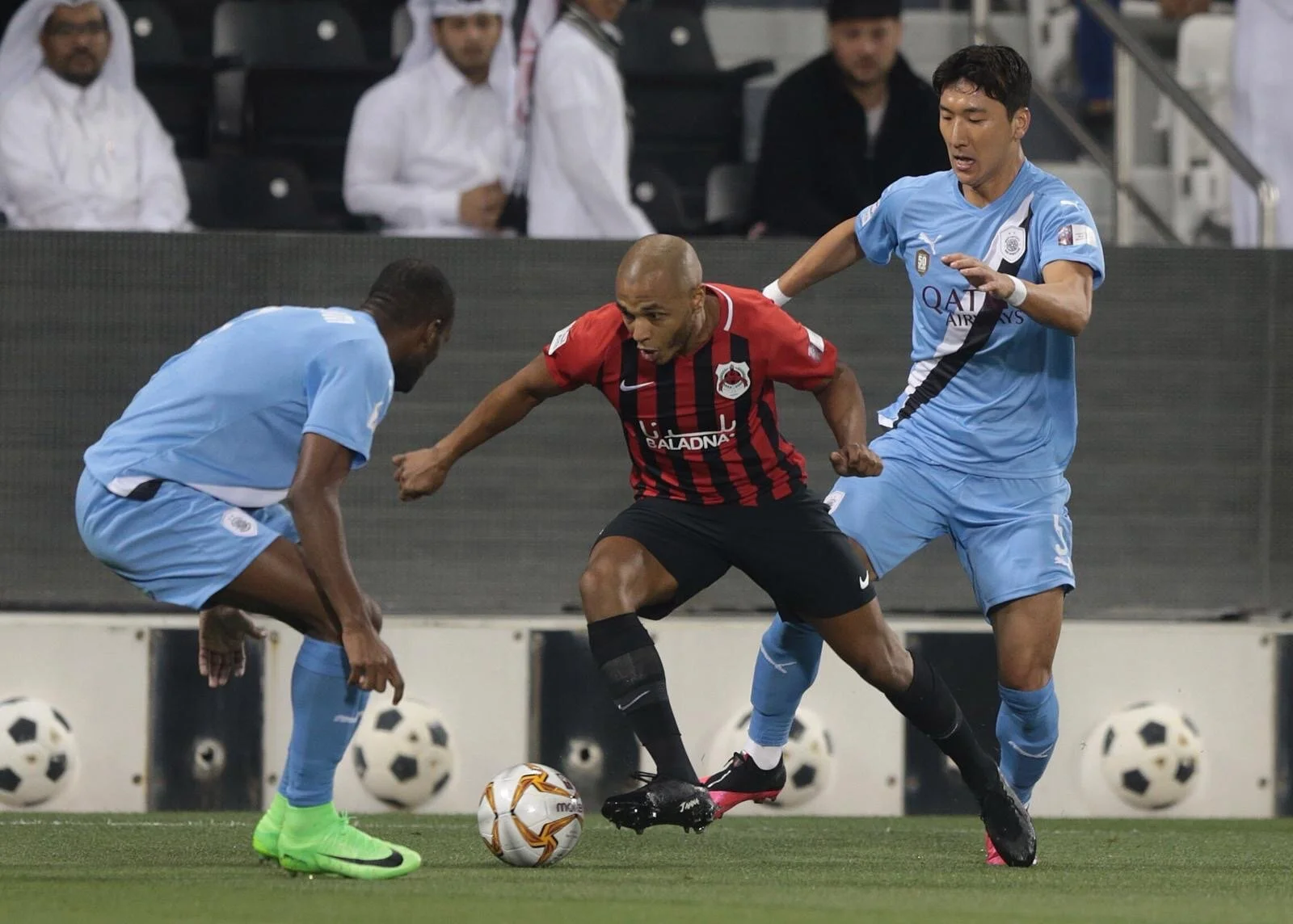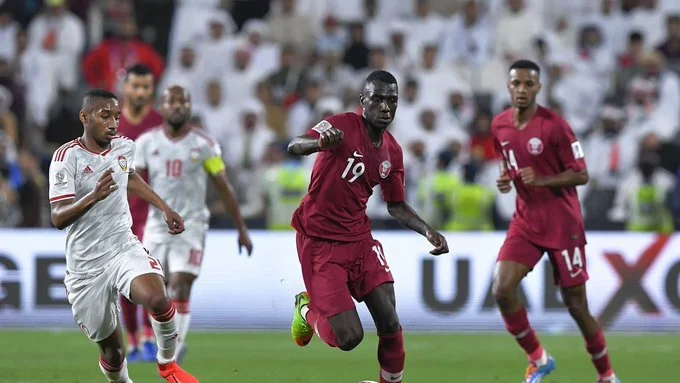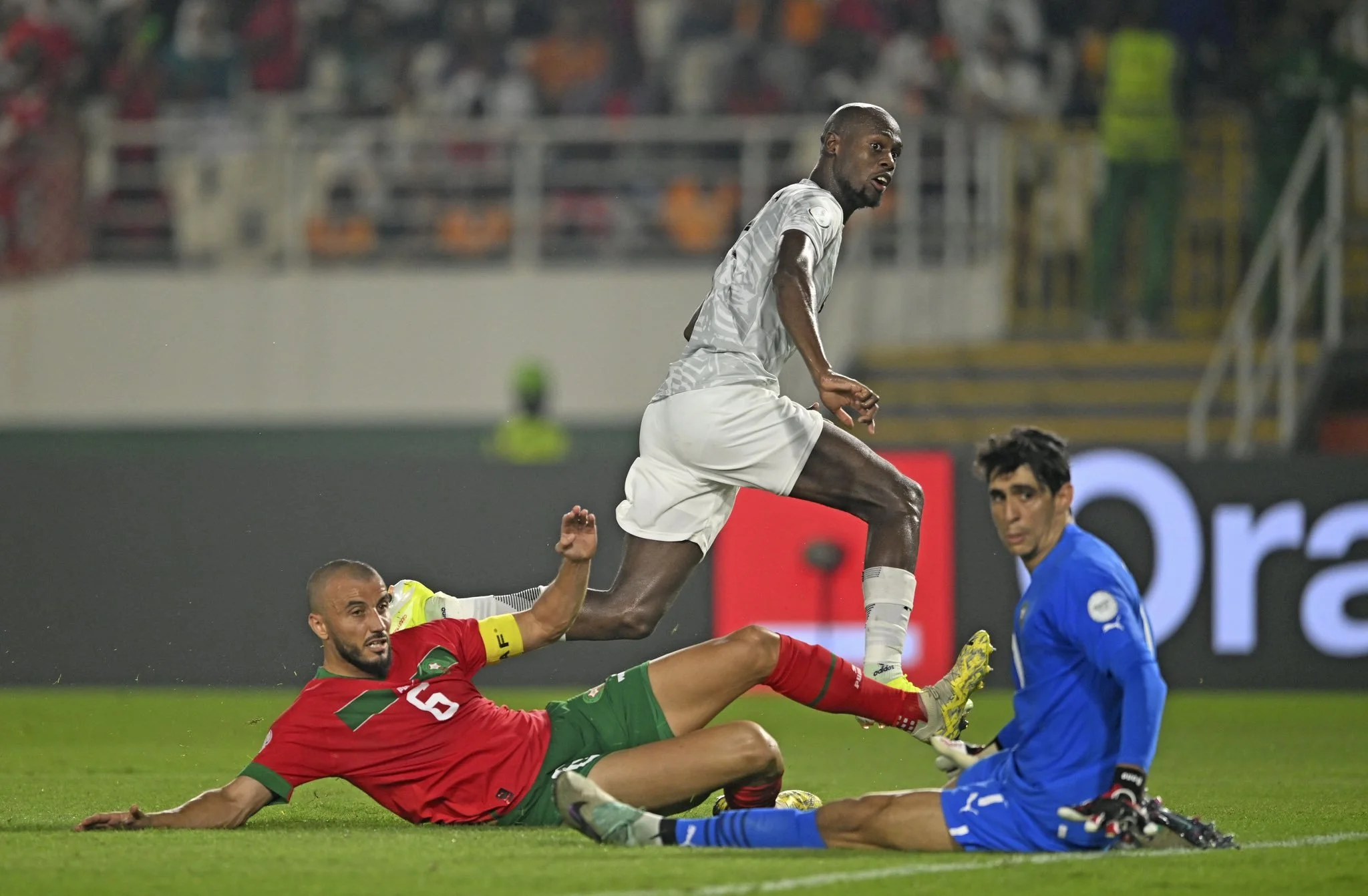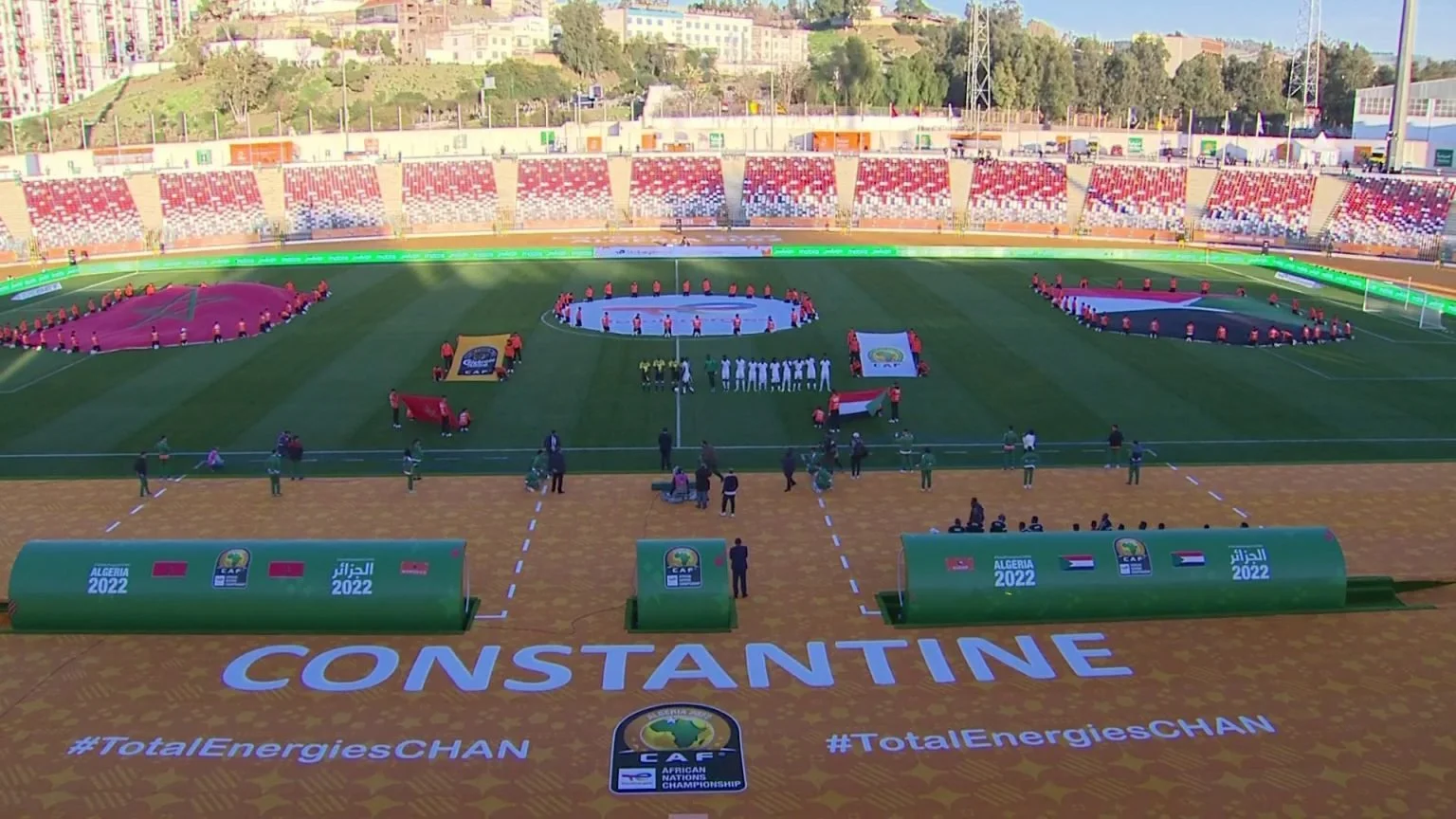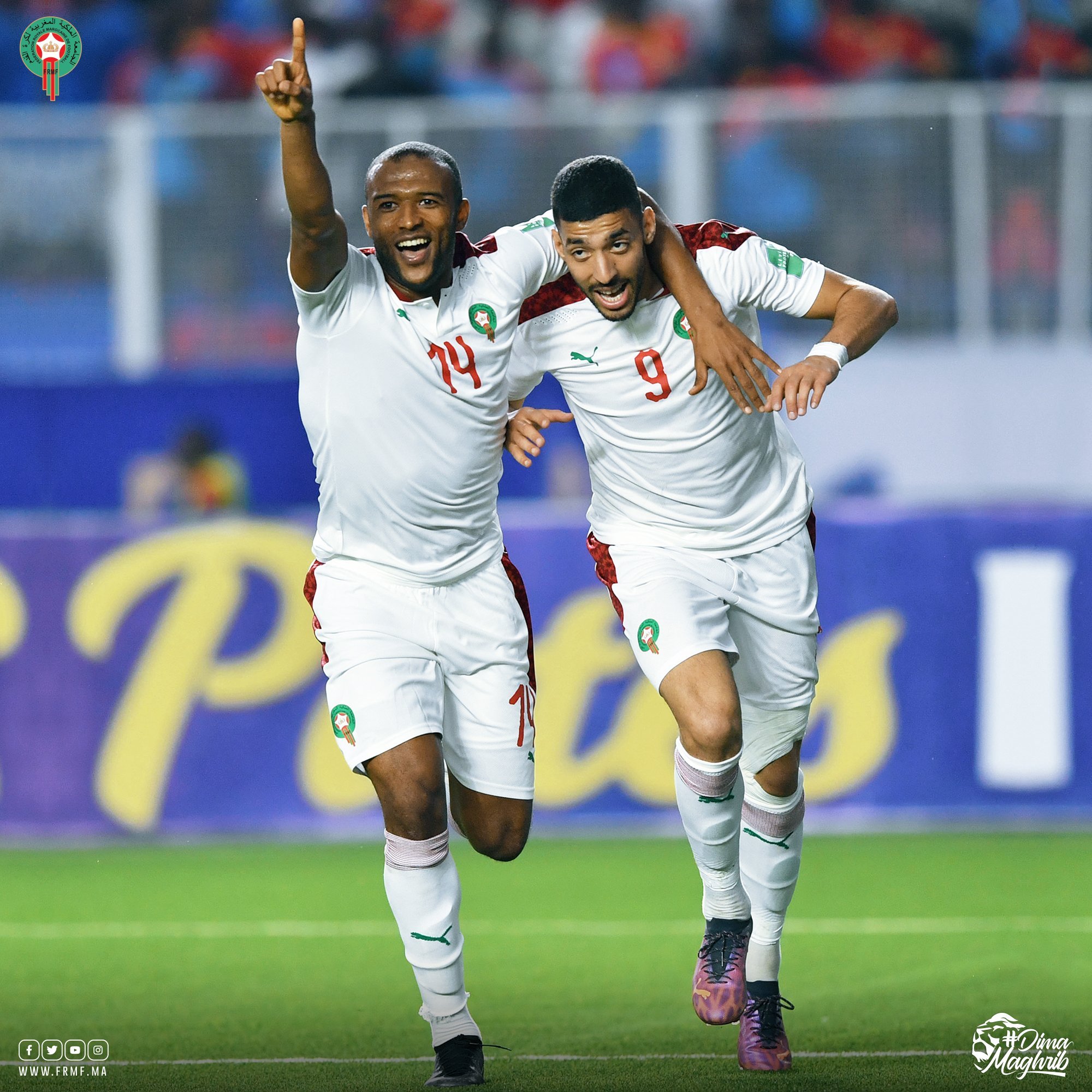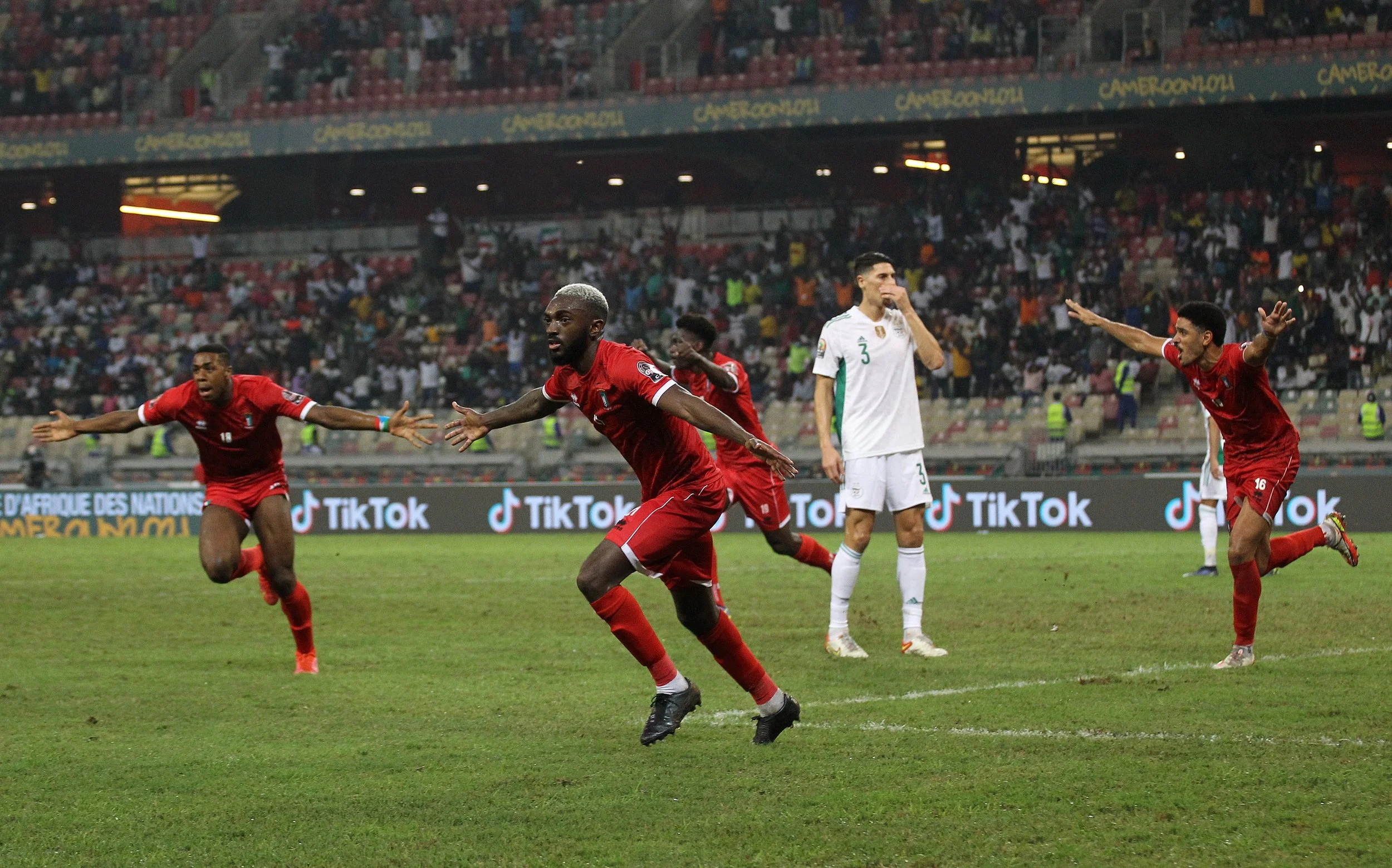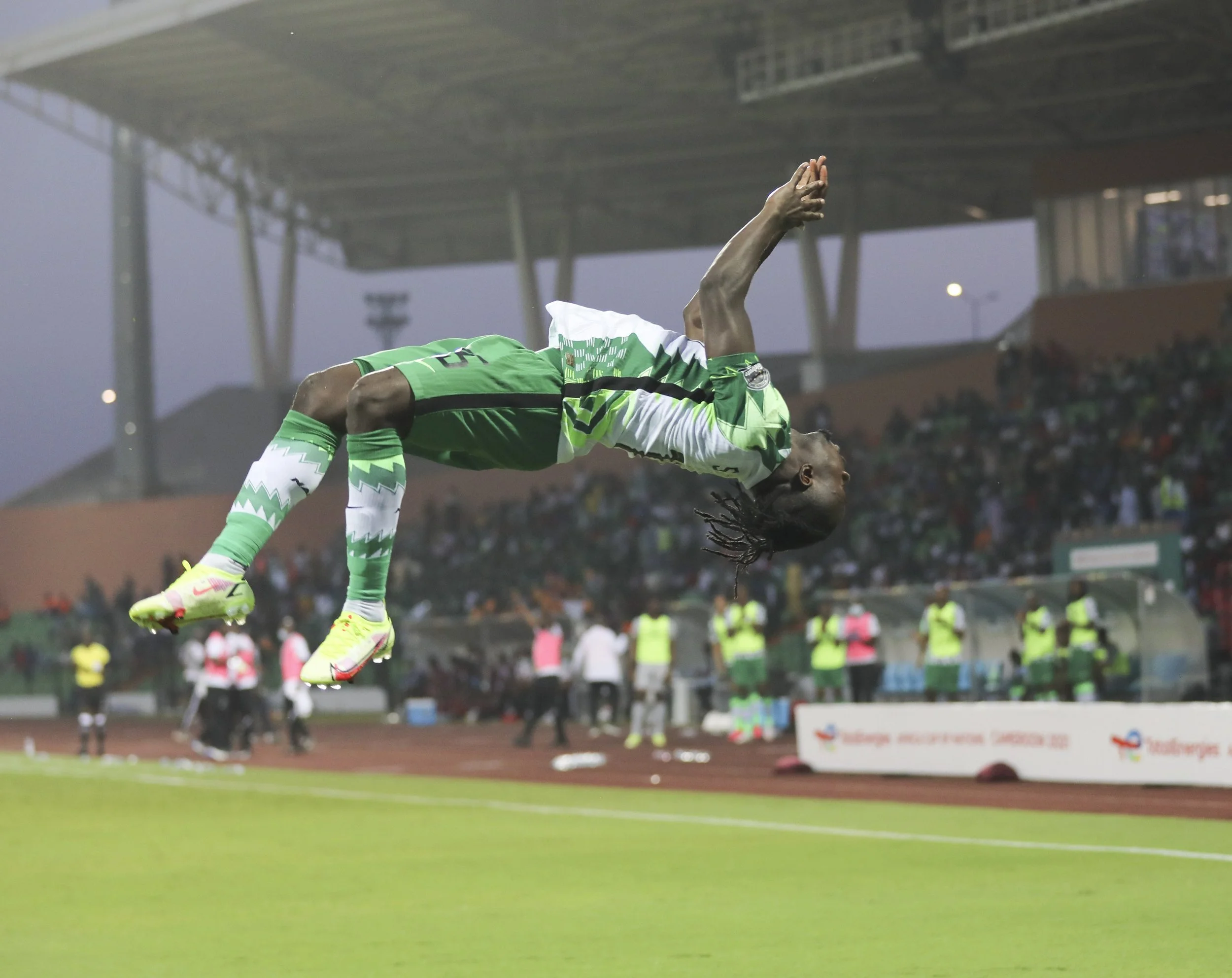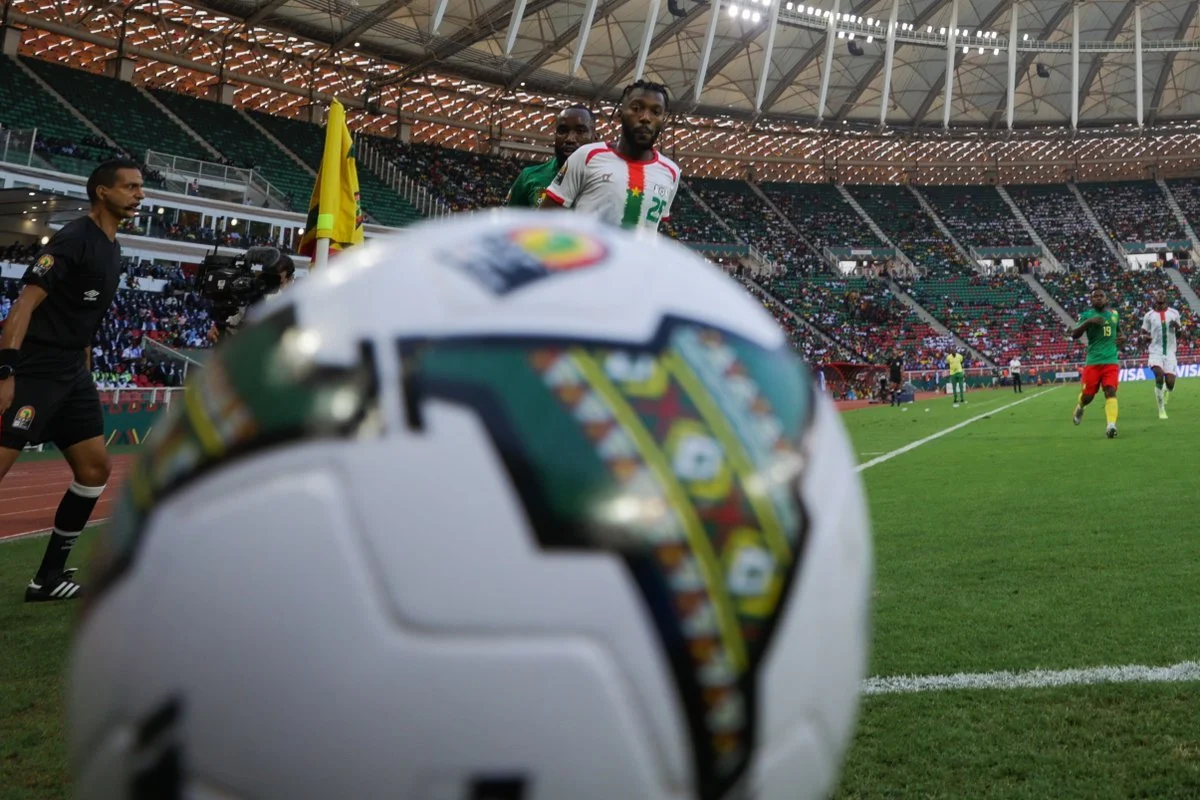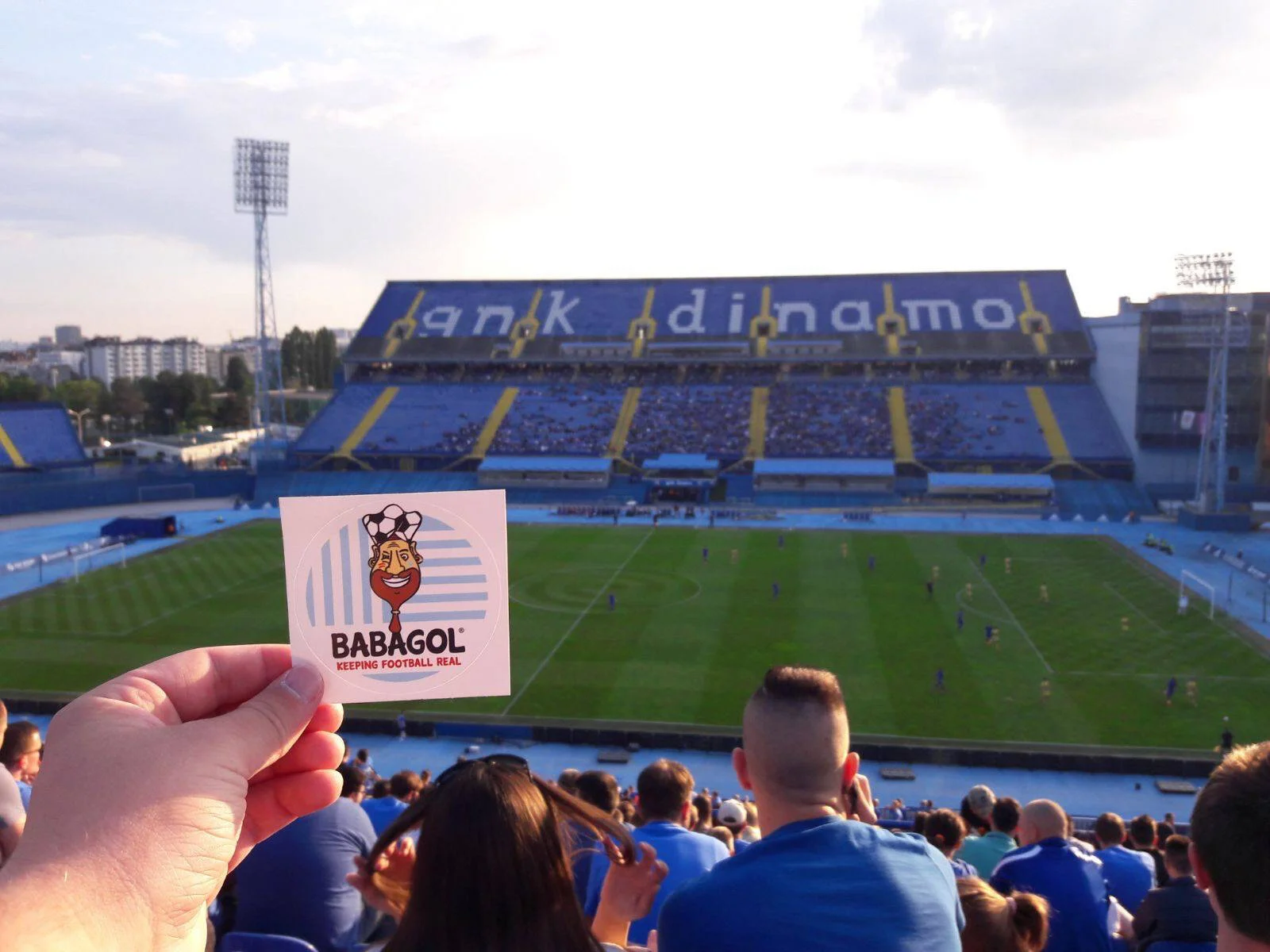Algeria’s Desert Warriors took home their first-ever Arab Cup title on Saturday evening, following a 2-0 extra time win against Tunisia.
It was a symbolic victory for several reasons. As well as marking one year until the 2022 World Cup final in Qatar, it’s also International Arabic Language Day, and it’s been 11 years (and a day) since the death of Mohammed Bouazizi, a Tunisian street seller. The event which became the catalyst for the Arab Spring, a series of events that plunged the Middle East into instability, social and civil unrest, and war.
When, deep in stoppage time, Yacine Brahimi ran half the length of the pitch single-handedly to seal the final in favour of the Algerians, it proved something about this Arab Cup. These two and a half weeks of football, filled with passion, drama, national pride and fraternity, concentrated into a joyous explosion of happiness from the leading Arab nation in football - Algeria.
Algeria with their first ever Arab Cup (Photo: Algeria national team official Twitter)
Success across the board
From the opening ceremony, punctuated with music, a hologram and a unifying message, it was evident that we haven't seen something quite like this Arab Cup. As a rehearsal for next year’s World Cup, it was a perfect display of the infrastructure, transportation and stadiums. Everything worked smoothly, except for when the metro broke down for a couple of hours, and fans were able to attend three or four matches a day without a problem. In this respect, it proved that Qatar is ready to host a massive tournament.
The games were covered with new cameras and angles yet to be seen at a significant football event, building the appetite for 2022. And there was great football on offer too. Many were suspecting that, since big stars such as Mohammed Salah and Riyad Mahrez didn’t join up with their national teams, the Arab Cup would be a boring tournament. Boy were they wrong.
With great games such as Algeria v Egypt, Algeria v Morocco, Qatar v UAE and the final itself, it provided a stage for both new talent and forgotten veterans to showcase their skills on such a platform. The result was a quality tournament filled with beautifully addictive football - 2.3 million YouTube viewers for the final proves this point.
Beautiful goals
We were treated to some fantastic goals this tournament, from the likes of Firas Ben Arbi (Tunisia), Mohammed Chibi (Morocco), Ahmed Refaat (Egypt), Mohammed Mohammed Anez (Syria), Mohammed Bassem (Palestine) and, of course, Algeria's Youcef Belaïli’s, who put away an unbelievable 40m strike that stunned Morocco. The level of scoring was sublime. Overall, 82 goals were scored in the Arab Cup, with only two matches ending goalless (Iraq vs Bahrain, Qatar v Egypt) - a sign of a highly entertaining competition.
Drama
From Qatar's victory over Oman, to Syria's win over Tunisia. From the Fair Play Clásico between Algeria and Egypt, to the Morocco v Algeria quarterfinal. Even the final itself, the Arab Cup was all about drama, unpredictable scenarios, and a spontaneous festival of football.
Topping that list, you’ll find the third-longest period of stoppage time ever. In the semifinal between Qatar and Algeria, nine minutes of added time were scheduled - instead we saw 19!
To say we’ve experienced goosebumps this tournament is an understatement, all the way until the last moments of the final.
Added time
That wasn’t the only match where the length of stoppage time was a talking point. There were few 'normal' added minutes in the Arab Cup - six, seven, eight and nine minutes were commonplace.
In that infamous Qatar v Algeria semifinal, including the six added minutes at the end of the first half, the players played a total of 127 minutes of football - without heading to extra time!
It might not sound like it, but this was perfect. It added a sense of uncertainty and surprise about what would happen next. It was breathtaking.
"Khawa Khawa": the fans
The atmosphere on display at this tournament was electric. A great set of fans, both Qatari locals and those from across northern Africa, made every match a display of football fandom, with great singing and colourful characters.
There was an immense sense of fraternity too. Brotherhood, companionship and mutual respect permeated from on the pitch, up to the stands, and on to the streets of Qatar.
"Khawa khawa" was a common expression among fans of different teams. It refers to a few songs about supporting each other and being close. Reda Taliani’s hit song of the same name could be heard all over the place.
The stands were diverse too, including many female fans from across the Middle East. It was far from the stereotype of terraces banning women - a proper party for the whole Arab world.
Palestine
Although Palestine were knocked out in the group stage, after a devastating loss to Jordan, they were present in the tournament from the very beginning until the very end.
From the moment the Palestinian flag was shown in the opening ceremony, during the singing of ‘the Arab National Anthem’, the Palestinians were the official darling of the tournament - Algerians and Tunisians celebrated with their flag after every victory.
The legends match between Arab legends and those from across the world was boycotted by some Algerian stars, including Rabah Madjer, Rafik Halliche and Rafik Saifi, protesting the decision to ask an Israeli, ex-Chelsea manager Avram Grant, to coach the international side.
But, despite this atmosphere, Palestine remains an open wound in the heart of the Arab world and the Middle East.
Belaïli: a star is (re)born
Many names have popped up as being the possible star of the tournament, with Akram Afif, Hannibal Mejbri and even Seifeddine Jaziri being mentioned. Still, if there is one person who can be said to have made the best out of this month's Arab Cup, Youcef Belaïli would be that man.
The Algerian forward was outstanding for Les Fennecs, scoring two goals (one of them an absolute blinder), assisted one, and won crucial penalties for his team. Belaïli was so dominant in this tournament, he even received offers from Europe after successfully terminating his contract with Qatar SC.
Belaïli had a short stint with French side Angers in the past, before his career got a severe hit after he tested positive for cocaine, he claimed it was accidental at the shisha place he smoked at. For the next two years, the Algerian struggled to play football consistently, due to that case, but his talent and abilities are unquestionable.
His importance to Algeria is also definitive. The man who was the star of Taraji Esperance Tunis in their winning era of CAF Champions League has made an enormous jump forward as the latest star of Algerian football.
North African dominance
It was predicted before the tournament, but has become even clearer after: the north African Arab national teams are much better than the west Asian ones.
The north Africans' intensity, the physicality of their game, and their direct connection to the European game have made the difference between the two sets of national teams. The semifinals and finals included boiling north African derbies, and were excellent examples of the advantage the north Africans have in such a tournament.
West Asian hopes
But not everything was negative for the west Asian teams. Syria managed to demonstrate the right way to face a north African opponent, when they surprised everyone with their shock 2-0 victory over Tunisia - showing off in a quick and aggressive display. Jordan almost reproduced this style in the quarterfinal against Egypt, but lost in extra time.
Four west Asian sides and four from north African made it to the knockout stage, but the quality and gap between the two regions is evident. More cross-confederation tournaments such as this can help the Asian Arab nations to improve dramatically.
Rare unity in a conflicted region
At last, the Arab Cup was a successful event in a way very few predicted it would be. It was a perfect and rare display of unity in one of the most conflicted regions in the world. Yes, it's true, there are still many problems in this area of the world, but this was a rare moment of solidarity and joy for a region that traditionally, and particularly in the past decade, suffers from ongoing ethnic and religious conflicts.
Weapons, wars, casualties, poverty, human rights, blockades and boycotts are just the tip of reality in the Middle East. Still, a tournament such as the Arab Cup can be used as a tool to spread hope, friendship, peace and compassion across the region.
Many media chose to focus on the migrants working in Qatar and, with less than a year to the World Cup, it makes sense. It’s a key and important topic, more important than any football match, that needs to be brought to light but, by doing so, they missed another story. A story of a region that strives to feel normal, welcome, and be a part of an international event as equals.
Yes, it is complex, and there is a contradiction there, but one cannot neglect the value and significant impact the Arab Cup had on fans and people of the Arab World and beyond. And who knows, maybe one day, there will be a 'Middle Eastern Cup' involving Iran and Israel too. It sounds like science fiction at the moment, but in this region, everything is possible. Khawa Khawa.
Photo via Algeria national team official Twitter.
Edited by Alex Smith.



